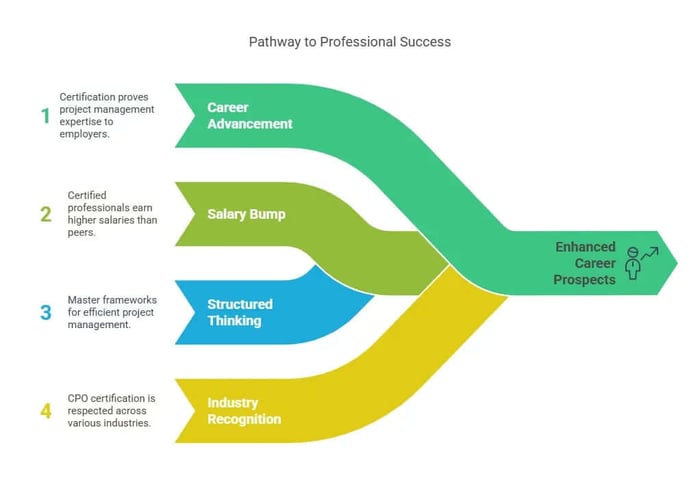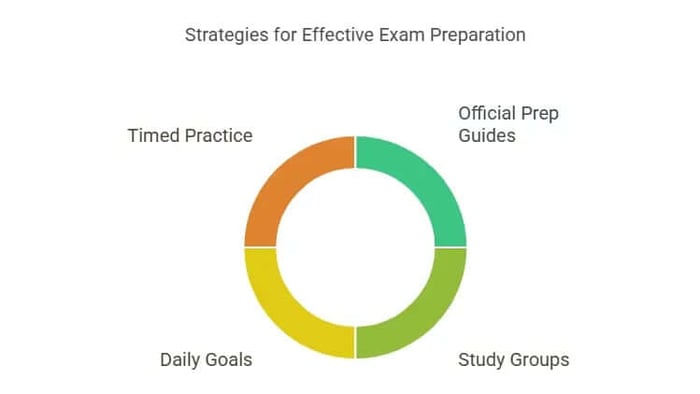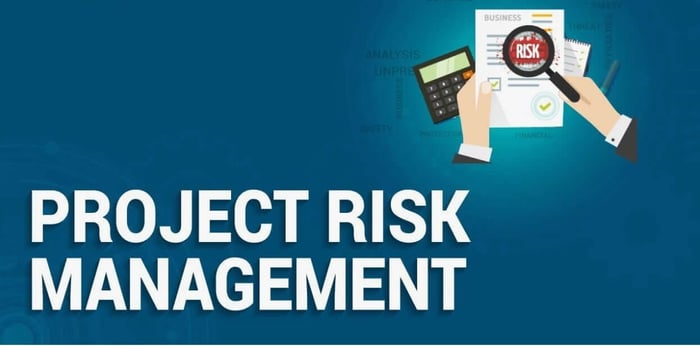Table of Contents
- What is a Certified Project Officer (CPO)?
- Who Should Pursue the CPO Certification?
- CPO vs. PMP vs. CAPM – Which One’s Right for You?
- Eligibility Requirements for CPO Certification
- Curriculum and Exam Overview
- Where Can You Get Certified?
- Cost of the CPO Certification
- Study Tips to Ace the CPO Exam
- Career Paths After CPO Certification
- Testimonials and Case Studies 🧠
- Global Recognition and Demand 🌍
- Final Thoughts
- FAQs
So, you want to be a Certified Project Officer (CPO)? Well, get ready to flex those brain muscles! Whether you dream of leading multimillion-dollar engineering marvels or just want to stop your team from reinventing the wheel every Monday morning, the CPO certification might just be your new best friend. In this guide, we'll deep-dive into everything you need to know about the Certified Project Officer (CPO) credential, with a funky flair and some serious facts to help you decide if it's right for your career.
Spoiler alert: If "project chaos" is your current job title, this guide might just save your career. 💼🚀

What is a Certified Project Officer (CPO)?
The Certified Project Officer (CPO) credential is a foundational project management certification that equips professionals with the skills to manage and coordinate projects effectively. It is ideal for individuals looking to take the first step in the structured world of project management.
The CPO is designed to validate core competencies without requiring years of prior experience.
👉 "If you’re exploring long-term career goals beyond CPO, understanding the project manager license pathway can help clarify your next steps in professional development."
Understand the core of what a CPO certification means and who it’s for.
The Certified Project Officer (CPO) credential is a globally recognized certification aimed at early-career professionals or those transitioning into project roles. It covers foundational knowledge and practical applications in project management. Think of it as your passport into the world of structured planning, on-time delivery, and successful teamwork.
CPOs often work as project coordinators, junior project managers, or even technical professionals who regularly collaborate with PM teams. This cert proves you're fluent in "project speak" and know your Gantt charts from your burn-down charts.
Why Get CPO Certified?
The CPO certification opens the door to formal project management roles by offering globally recognized validation of essential skills. It also builds confidence and credibility among peers and employers. For many, it serves as a stepping stone to more advanced certifications like PMP or Agile credentials.
👉 For engineers working in Agile environments, combining a CPO with a Certified Scrum Master certification can significantly boost cross-functional collaboration skills.
Explore the benefits and career boost this credential can offer.

Career Advancement: Many employers look for a recognized certification as proof of PM knowledge.
Salary Bump: Certified professionals can command higher pay rates than non-certified peers.
Structured Thinking: You’ll master frameworks that help streamline even the messiest of projects.
Industry Recognition: The CPO is respected in industries from tech to construction.
💡 Fun Fact: According to the Project Management Institute, certified project professionals earn up to 20% more than their non-certified counterparts.
Who Should Pursue the CPO Certification?
This certification is ideal for early-career professionals, recent graduates, or those shifting into project roles from technical or operational fields.
Engineers, analysts, and coordinators will find it especially valuable for transitioning into structured PM responsibilities. It’s also beneficial for individuals who support project teams and want to advance.
Ideal candidate profiles and career scenarios.
You should consider the CPO credential if you:
Are a recent graduate entering the project management space
Are transitioning from a different field into project roles
Work in technical/engineering roles and want to manage projects
Are a team leader coordinating small-to-medium-sized projects
CPO vs. PMP vs. CAPM – Which One’s Right for You?
While PMP is geared toward experienced professionals, and CAPM suits entry-level aspirants, the CPO bridges both by focusing on practical coordination and oversight. It’s a cost-effective and less intense option compared to PMP while still delivering strong career benefits.
Choose CPO if you’re seeking a comprehensive but accessible PM credential.
Compare the CPO with other top project management certifications.
Credential | Experience Level | Focus Area | Cost | Time to Complete |
CPO | Entry-Level | Practical & Foundational PM | Low | 1-2 Months |
CAPM | Entry-Level | PMI Framework | Medium | 3-4 Months |
PMP | Mid-Senior Level | Advanced PM Concepts | High | 6+ Months |
Eligibility Requirements for CPO Certification
To apply for the CPO certification, candidates typically need a high school diploma or equivalent and some demonstrated involvement in project environments.
There are no strict experience requirements, which makes it highly accessible. Some providers may require completion of an entry-level training course or workshop.
Do you qualify to take the CPO exam?
High school diploma or equivalent
Basic knowledge of project work or processes
No formal PM experience is required (ideal for beginners)
Unlike PMP or PRINCE2, CPO doesn’t require thousands of hours in a PM role, making it super accessible.
Curriculum and Exam Overview
The curriculum usually covers project initiation, planning, execution, monitoring, and closure, along with communication and team coordination.
The exam includes multiple-choice questions and scenario-based problems to assess real-world application. Some programs also include hands-on simulations or case studies.
What’s covered and how you’ll be tested.
The CPO curriculum typically includes:
Project lifecycle
Scope and resource management
Stakeholder communication
Risk and quality planning
Project documentation & reporting
📝 Exam Format:
100 multiple choice questions
2 hours total
Pass mark: 70%
Where Can You Get Certified?
Several reputable organizations and training institutes offer CPO certification, including both in-person and online formats.
Look for programs aligned with global PM standards, such as those endorsed by PMI or IPMA. APMIC also offers a trusted, recognized CPO certification pathway online.
Explore top institutions offering CPO training and certification.
Some globally recognized providers include:
APMIC – A one-stop platform for project management certifications
Global Association for Quality Management (GAQM)
International Organization for Project Management (IO4PM)
Cost of the CPO Certification
The cost of obtaining a CPO credential can range from $300 to $800, depending on the training provider, region, and whether the exam fee is included.
Some institutions offer bundled packages that include training, materials, and the test. Many employers also reimburse the certification cost.
Breakdown of typical expenses and budget tips.
Item | Cost Range |
Course Fee | $150 – $400 |
Exam Fee | $100 – $250 |
Study Materials | Often Included |
💡 Budget Tip: Look for bundle deals that include exam and training access.
Study Tips to Ace the CPO Exam
Focus on understanding core project management processes and how they apply in different industries.
Practice with mock tests and study real-world project case scenarios. Joining a study group or taking part in community forums can also be a game-changer.

Practical advice for effective preparation.
Use official prep guides and mock exams
Join a study group or online forum
Break topics into small, daily goals
Simulate exam day with timed practice
🎧 Podcasts like PM Happy Hour and The Lazy Project Manager can also offer insights in a more relaxed format.
Career Paths After CPO Certification
CPO holders can pursue roles like Project Coordinator, Junior Project Manager, PMO Analyst, or even Assistant Project Manager.
The certification provides a springboard into industries such as construction, IT, healthcare, and manufacturing. With experience, professionals can upgrade to PMP or Agile certifications.
Where can the CPO take you?
Project Coordinator
Junior Project Manager
Operations Analyst
Business Process Associate
Program Assistant
🗺️ The CPO certification is your stepping stone to advanced certs like PMP and PRINCE2.
Testimonials and Case Studies 🧠
Real professionals from engineering, IT, and business backgrounds have used the CPO credential to successfully enter and grow within project management.
Case studies reveal faster promotions and increased project responsibility post-certification. Many note that CPO helped clarify PM principles that were previously learned informally.
Real stories from CPO-certified professionals.
"The CPO helped me transition from engineering to project coordination. I finally feel in control of my career." – Priya N., Toronto
"I was a tech support lead juggling projects. The CPO gave me the tools to actually manage them." – James O., Dublin
Global Recognition and Demand 🌍
CPO certifications are gaining traction worldwide, particularly in emerging markets where structured project practices are being adopted rapidly.
Employers in the Middle East, Southeast Asia, and Latin America recognize the CPO as a practical project management qualification. Its global value continues to grow as project-based work becomes the norm.
How CPO is viewed around the world.
The CPO is gaining recognition as a foundational cert across Asia, Europe, and North America. Companies like Siemens, Ericsson and government agencies appreciate its practical orientation.
Final Thoughts
If you're looking for a practical, fast-track, and budget-friendly way to enter the project management field, the Certified Project Officer credential could be your golden ticket. It sets a strong foundation, builds confidence, and gets you speaking the language of project success.
To explore trusted training providers and learn more, check out APMIC’s project management certifications—your one-stop hub for career-ready PM credentials.
FAQs
What’s the average salary for a CPO-certified professional?
CPO-certified professionals can earn $55K–$75K annually, depending on role and region.
Is CPO better than PMP for beginners?
Yes, CPO is ideal for beginners; PMP is better suited for experienced managers.
How long is the CPO certification valid?
Typically 3 years, with options for renewal via continuing education.
Can I take the CPO exam online?
Yes, most providers offer online proctored exams.
Is there a renewal fee for CPO certification?
Yes, typically $50–$100, depending on the provider.
Can engineers benefit from the CPO certification?
Absolutely. It’s a great foundation before pursuing PMP.
What industries value the CPO the most?
Tech, construction, healthcare, and government sectors all value it.
Do I need project experience to get CPO certified?
Nope! That’s what makes it ideal for those just getting started.





